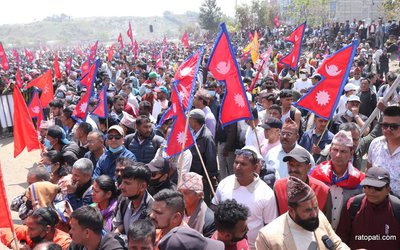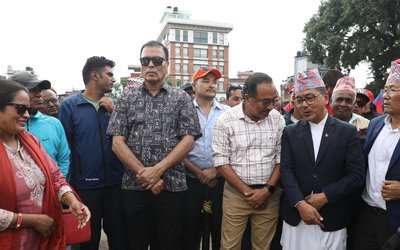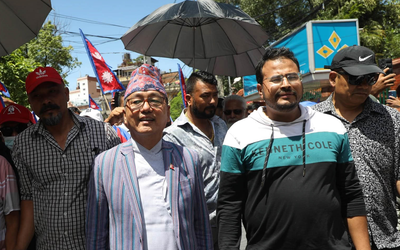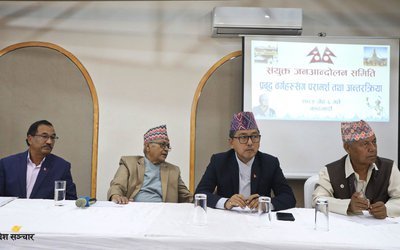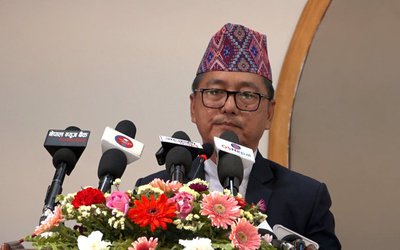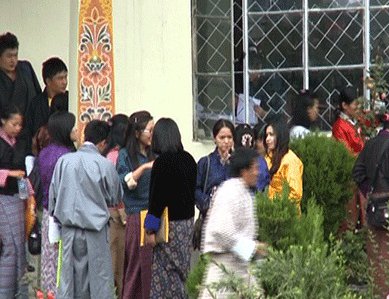
Politics is a citizen's action every day, all the time. There is no doubt that the health of democracy depends on young people in large part. The young generation of youth is the main pillar in determining the progress of the nation. 60% of the population is under the age of 40 and is the lung of our society. We cannot deny the wheels of politics will not rotate without the involvement of youth. Our education system does not help the personal development of young people to improve their well-being and to tackle problems such as injustice in society. Young people have their own frailty but still remain open, available, and generous. They are no longer prisoners of ideologies as the previous generation. Exploring the dynamics of youth politics, participation is not an easy task. The core issue is not the new generation or the old generation. It's the thought process they have. In politics, we should incorporate all walks of life based on their ability and contribution to a greater cause. We have to understand our strengths. We can do better only if our ability to accept diversity, the openness of the mindset, and respect for every belief without having this generation conflict.
Everything is a matter of politics. The quality of the air we breathe or waste disposal depends on political decisions. Every moment of our lives, every decision we make or let others make is political. To do politics is to make trade unionism, to militate and not to take as much cash from everything that the media tells you. To make politics is to exist!
Youth are individuals with dynamic characters, both turbulent and optimistic, but lack stable emotional control. The youth population accounts for the largest segment of our country. Youth should be an important force in the process of political change and progress in Nepal. Democracy is supposed to be about choices, freedom, and hope and what kind of hope can we have if a leader who is 65 and above is leading this nation? Most of these old leaders never had the potential, and they promised everything but never fulfilled even a single one and we're not accountable for their actions.
No one has yet done an in-depth survey to find out what young people think about politics. There could be surprises because a majority of them are apolitical since they do not trust the parties. They consider themselves to be archaic, but that, in turn, does not mean that they abhor democracy. They are pragmatic and post-political. They do not see an excessive difference between progressives and conservatives. For them, they are all the same or almost the same. And above all, they are not afraid of them. Young people like to change things. They are dynamic, while they see politics as static. They want to change everything, sometimes in too much of a hurry.
Some have fallen into political controversy without ever having a basis of political knowledge. That is a really worrying trait. A country that wants to grow and prosper must have a knowledgeable and politically aware younger generation not afraid to speak out about important issues of the country. Along with it, it is necessary to make it possible for young people to be able to speak up for them as they are the generation that determines the future of the country. Why do they not speak up? Is it because they are not interested in the political discussion? Those doubts will have to be answered sooner or later. People have always criticized politicians and officials and blamed them for their troubles. Does this mean that the policy has always been bad or is it just normal for general people to hate officials?
Young people of Nepal believe they are living in a country where the government and ministries are unqualified people while many young graduates wander in streets searching for jobs. This is the reason governments allow any evil intended businessmen to decide how you should live your life. They have a frustration that they need a 4 years degree plus 3-5 years of experience to get a decent job. But no one in this administration has the bare minimum of knowledge or experience to even understand what their job actually is.
Youth participation is low in political parties and government institutions, but in groups and civil-society organizations are higher. There is no doubt that inclusive youth participation is a key condition of ownership for Nepalese socio-economic transformation. There are many factors affecting the level of participation by young people such as limited access to education and health, which is the result of problems with the availability, cost, and quality of education and health services. On the other hand, there are also factors of poverty, social habits, religious and cultural attitudes, and the willingness of adults to give them space to participate.
That values, political orientations, and attitudes of modern Nepal’s youth will replace the current politically active forces is a matter of truly public strategy and for the fate of most of the current Nepali youth and the fate of Nepali democracy. The future of Nepal depends on the actual establishment of a new type of social relations, including political, economic, legal, spiritual, and moral values. Intervening in an independent life the younger generation will have the most difficult period of development of the social system. Due to the socio-political crisis, the country's adaptive potential of the Nepalese society has undergone a serious test. Today, in order to become an active participant in the political process, a person must possess a certain set of political knowledge and skills to be indoctrinated to the process of general social change.
Young people should not only be used as a voting team or as a team to lift the electability and popularity of candidates. Youth in Nepal are busy taking care of politics in cyberspace, they must be political actors to make changes. They must take part in politics from the local, state, and federal levels.

Deepak Raj Joshi
(The author is a lecturer and IT consultant. He also writes fiction under the name of Kapeed Joshi. He can be reached by email at info@dipakjoshi.com.np.)
- Criminal Governance & Neopatrimonialism
- Jul 29, 2024
- Participatory Democracy
- Dec 07, 2023
- Rise Of Populism Boon Or A Bane
- Aug 13, 2023
- The Collapse Of Confidence And The Rise Of RSP
- May 17, 2023
- Lottocracy
- Apr 30, 2023
